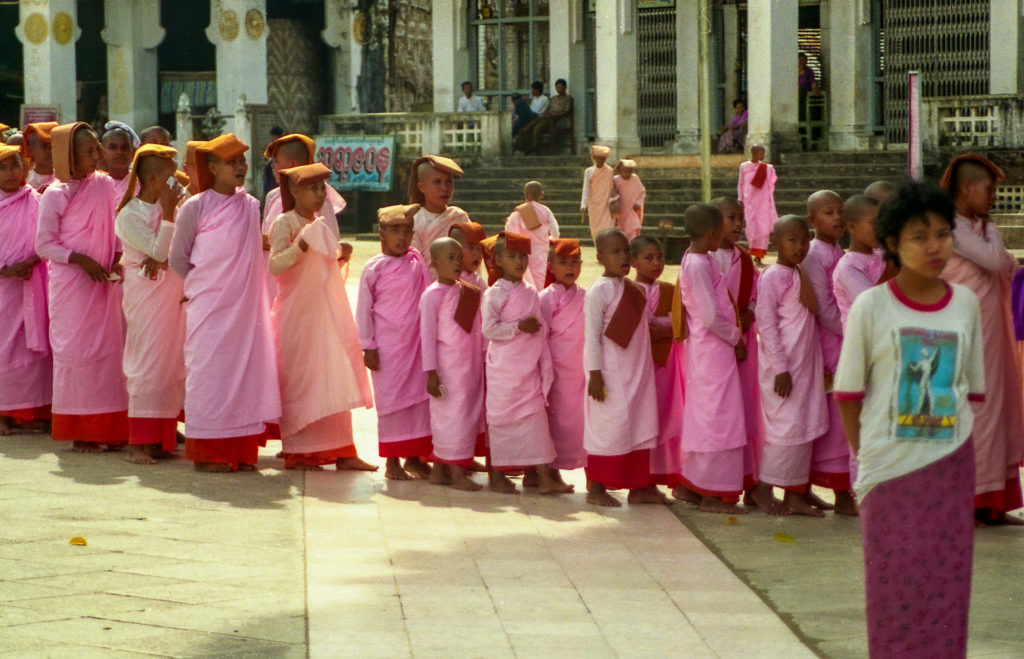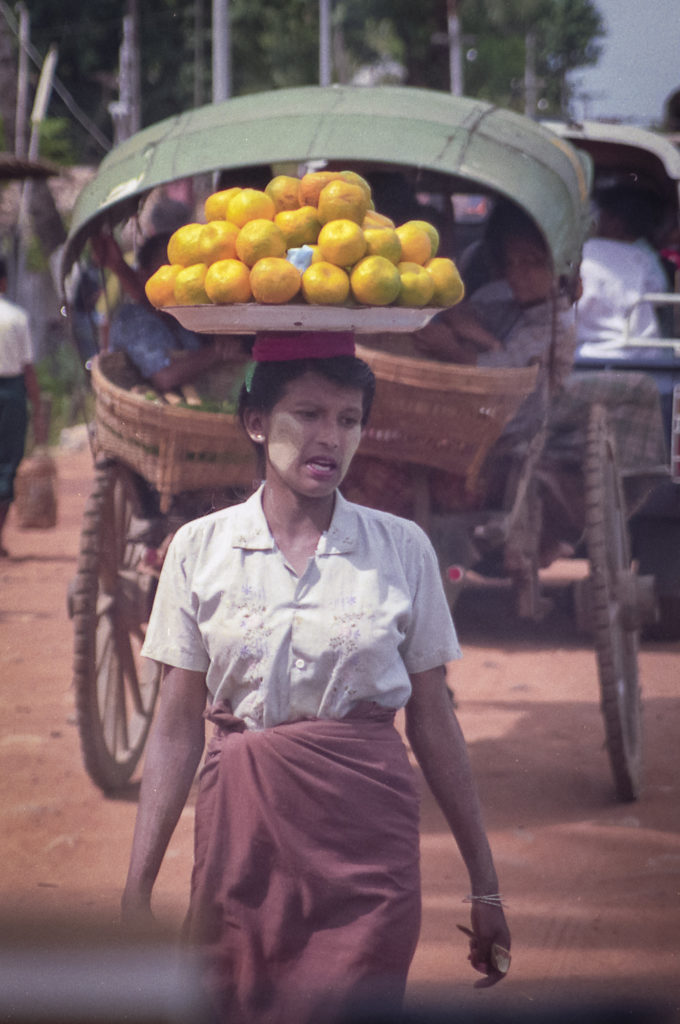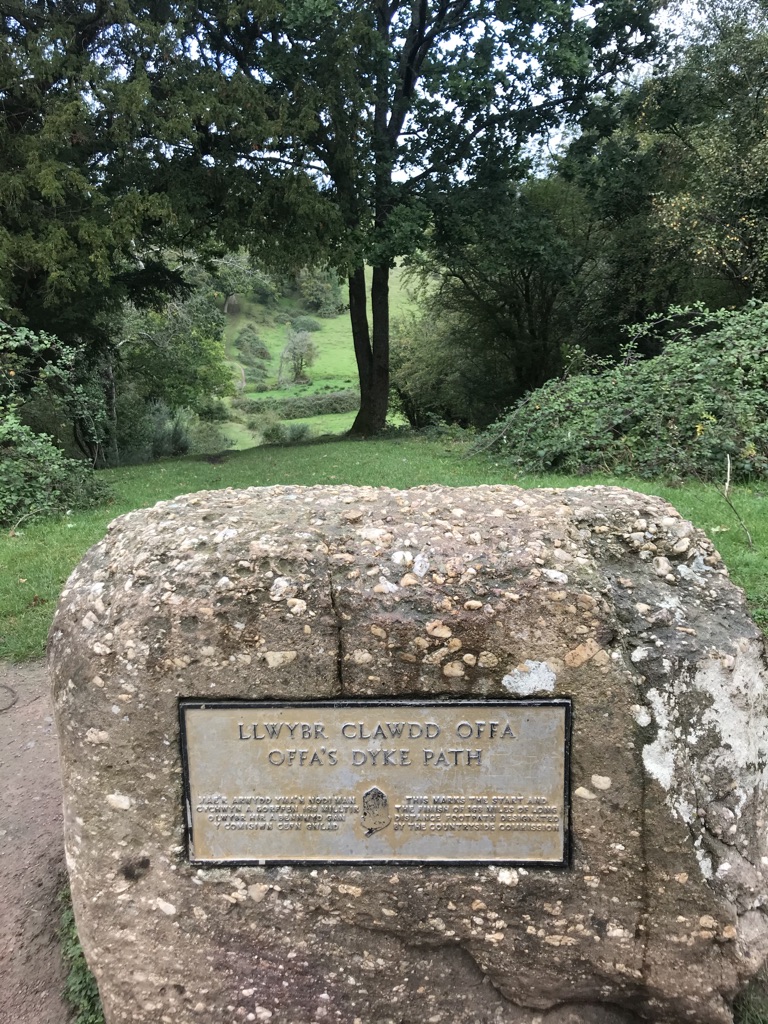‘Write and tell us when we are going wrong’ said Aung Sang Suu Kyi at the end of her interview with Fergal Keane in 1995.
I wouldn’t know this but for walking along Offa’s Dyke for a few days in 2019. My walking buddy and I found ourselves in a bookshop in Hay-on-the-Wye where I picked up a used copy of Fergal Keane’s Letter to Daniel, published in 1996 for his new-born son. While I’ve enjoyed dipping into these stories over the last fifteen months, I realise that Daniel must be around 24 now and I wonder what he thinks of his Dad’s letters. And I wonder if Keane ever wrote to tell Daw Suu how they were going wrong.

I was rereading today about Keane’s trip to Burma in 1995, to seek that interview with Aung Sang Suu Kyi who had just been released from house arrest. Temporarily released, she would spend 15 years confined to the house over 21 long years before becoming ‘prime minister’. He wrote of that 1995 interview:
‘I can tell you that Aung Sang Suu Kyi came across as one of the warmest human beings I have ever met. True, she is a political leader and in time she might have to take unpopular decisions, might take the wrong ones. But her humanity, her breadth of vision and her courage were truly inspiring.’
He has met and interviewed her again and regularly reported on her, by now calling her out for inaction.
As he wrote in 2017: ‘In her interviews with me back in the 1990s, she repeatedly stressed the need for non-violence.’
And later he added that:
‘Aung San Suu Kyi does not control the military and they do not trust her. But her refusal to condemn well-documented military abuses provides the generals with political cover.’
I lived and worked near Daw Suu’s home on Inle Lake for nearly two years. I passed her guarded gateway on University Avenue Road many times each week that I was in Rangoon. I never assumed that she would one day emerge from house arrest in triumph. She had been put under house arrest even before the NLD won the 1990 election. She was kept there in a nation run with a level of military control and associated corruption had deeply stitched itself into the fabric of Burmese society. Knowing why they detained her, I couldn’t imagine there’d be a good outcome.
Nor could I see how her steely determination to outplay the military could become such stubborn, wilful inaction over the mistreatment of Rohingya by fascist Buddhists (a hideous oxymoron). I certainly would never have imagined that Burma would be censoring and prosecuting journalists on her watch.
All I could see, from my privileged viewpoint from 1990 to 1992, was the end of her garden as I drank sundowners in the Yangon Sailing Club.

A quarter of a century later, I found myself walking Welsh borders with my friend as we re-acquainted ourselves after a gap of over 40 years. No house arrest for us, it was our utterly different life trajectories that kept us apart. Daw Suu had been back in the news, this time summoned to The Hague, where she would attempt to defend indefensible genocide. It was a long way from a Nobel Peace Prize in 1991 that was still being celebrated when I reached a version of Burma that aspired to ditch the military junta.
The trek along Offa’s Dyke was part of the preparation to walk together from Manchester to Rome. We needed a few days together in case we had drifted apart. It was a compatibility test that seemed wise given that our relationship was based on four years in college followed by four decades with barely any contact.

No lacuna, the gap-decades were filled beyond overflowing in each of our lives. We had so much catching up to do and it was all very copacetic. Indeed there remains much to discuss because we still haven’t been to Rome nor anywhere else either. And now I’m not sure if inoculation against the strain of the pandemic will be enough to open hostels for walkers. The routes we would use to Rome are mostly pilgrim trials and pilgrims, by definition have reasons for pilgrimage. The worry would be the times those would be health issues.
Perhaps I need to change the summary on About Me: ‘I had planned to walk to Rome from Manchester in 2020 with a friend. Pandemic overtook us and the walk has been postponed to 2021 2022 202?

I’m so sorry for Myanmar and the backward step they are forced into from today. You must have had a premonition!
I can’t say I had any premonitions. I simply thought that military intervention was increasingly likely but hoped it wasn’t inevitable.